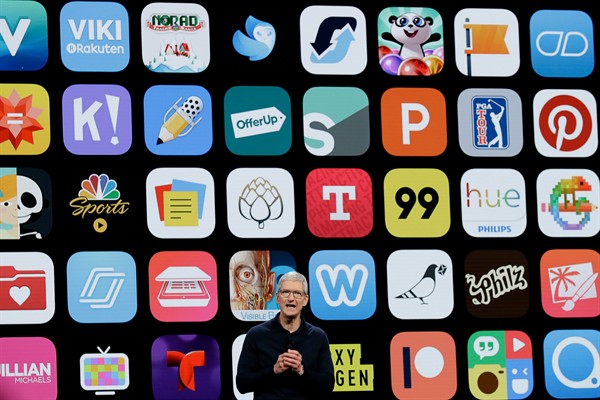Google recently announced it will enforce rules enabling it to take a 30 percent cut from app purchases in its Google Play Store starting next September, a controversial revenue-generating policy that Apple also uses in its App Store. Both tech giants are facing anti-trust lawsuits over the practice. Also this fall, Ukrainian authorities ordered Apple to remove the apps of Russian propaganda outlets from its store, which Russia’s Foreign Ministry called “another manifestation of the Ukrainian authorities’ repressive policy towards the media.” The move follows other actions by the Ukrainian government in recent years to restrict Russian state media outlets’ operations in the country.
These are just a few examples of the often overlooked, and contested, role that app stores play in shaping what information is available online, whether by taking down applications altogether, enforcing in-store policies or restricting which users can access software from a given location.
When it comes to the debate over Big Tech and digital policy in the United States, most of the attention is on online platforms like Facebook, Twitter and Google’s search engine, which, among other things, deliver content directly to users through a website. But that kind of public scrutiny is not applied as heavily, or at least as consistently, to online marketplaces for software.

